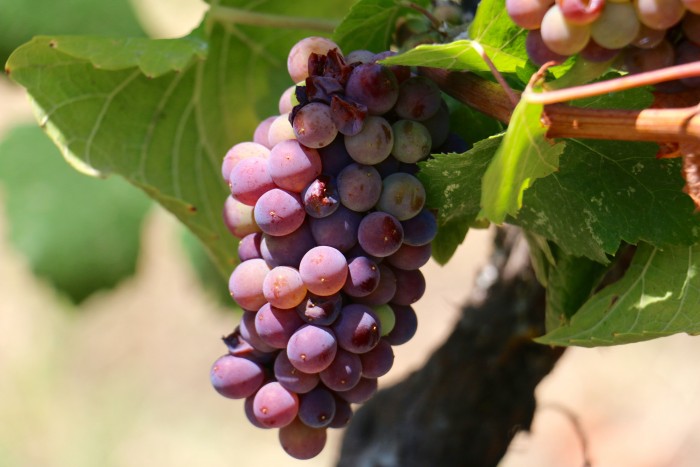Did you know wine is better in drought years?
Maybe I’m naive, but this was news to me when I strolled through the lush green vines of The Napa Valley. I listened as the vintner described his vines like an old lover, passionately explaining how grapes grow lazy and apathetic when there’s too much water.
California is the midst of an epic drought, and, because of this, I thought that the opposite must be true, that the grapes—and more importantly, the wine—must suffer in some way.
Well, that’s partly true, but that’s also what makes it so great.
Some of California’s best vintages come from the state’s most significant years of drought. Almost all the wineries I visited explained that 2013 was one of the best years in history, even though they said the same thing about 2012. The common theme? Drought.
What does drought have to do with it? Why would a lack of water make the wine better? It turns out that something beautiful happens when water is not easily available on the earth’s rocky topsoil. In the absence of excess nourishment, vines must go deep.
Vines have to struggle to get to the water that hides deep in the earth, tempting the strongest of the root systems to come drink. The struggle culls the fruit from the vines that it can’t sustain while feeding the fruit that fights to thrive. What remains are clusters of deep violet filled with the potential to take your breath away.
The greatest wines are a result of a deep struggle. Grapes that don’t struggle fail to create the kind of complexity that makes wine taste like sex. It is the struggle, the unquenched thirst, the relentless pursuit for nourishment that produces the remarkable drink.
My grandparents are a pair of deeply rooted vines. After 60 years of struggling through the droughts that accompany parenting, loss, and massive shifts in cultural values, Betty and Fred boast the deeply violet and purple hues of a beautifully complex love story. If you ask them, each will tell you that the reason they made it to the earth’s deep water was because they stayed entwined through the struggle.
All relationships face hardships. Each of our struggles is our own. Some relationships suffer blows that weaken the vines beyond their ability to reach for what they need. Many of us don’t know whether the search is worth it. We fear that our partners’ love for us will wither away when we finally reach the deep water.
We’re afraid the struggle will kill us.
Some vines rot at no fault of their own, and some relationships need to end. In this country, we still have a lot to learn about celebrating divorced and formerly partnered persons as whole people.
One of the great things about being human is that, unlike grapevines, we get second chances. Or third. Love that endures the pains of deep growth has the opportunity to bear fruit with the complex flavors of a great story.
Many of our struggles are temporary. There are always chances to find nourishment if we fight together. Not a single one of us can do this alone. We need each other. We need each other again. Relationships that fight to thrive and survive may not be the result of a rotten vine, but rather, the result of a drought. And sometimes, droughts just happen.
When a drought comes, it may not mean we’re doing something wrong. Maybe a drought just means we need to go deeper. Those of us who have reached the water should drink deeply. Life has a way of knowing when we need to strengthen our vines.
~
Relephant:
How to Get Divorced like a Grown Up.
~
Author: Mathis Kennington
Editor: Travis May
Photo: Author’s own












Read 0 comments and reply